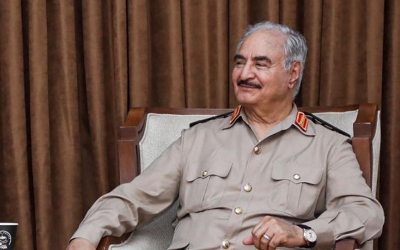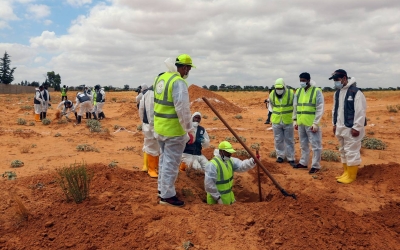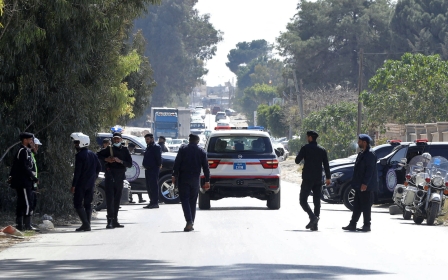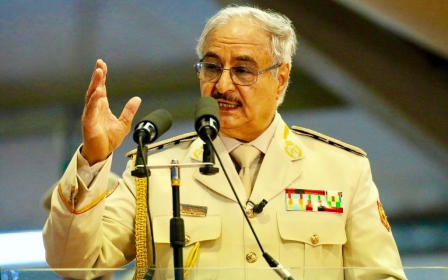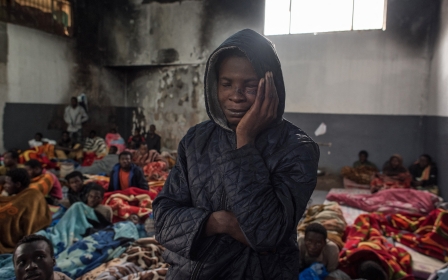Libya: Warring parties may be guilty of war crimes, says UN
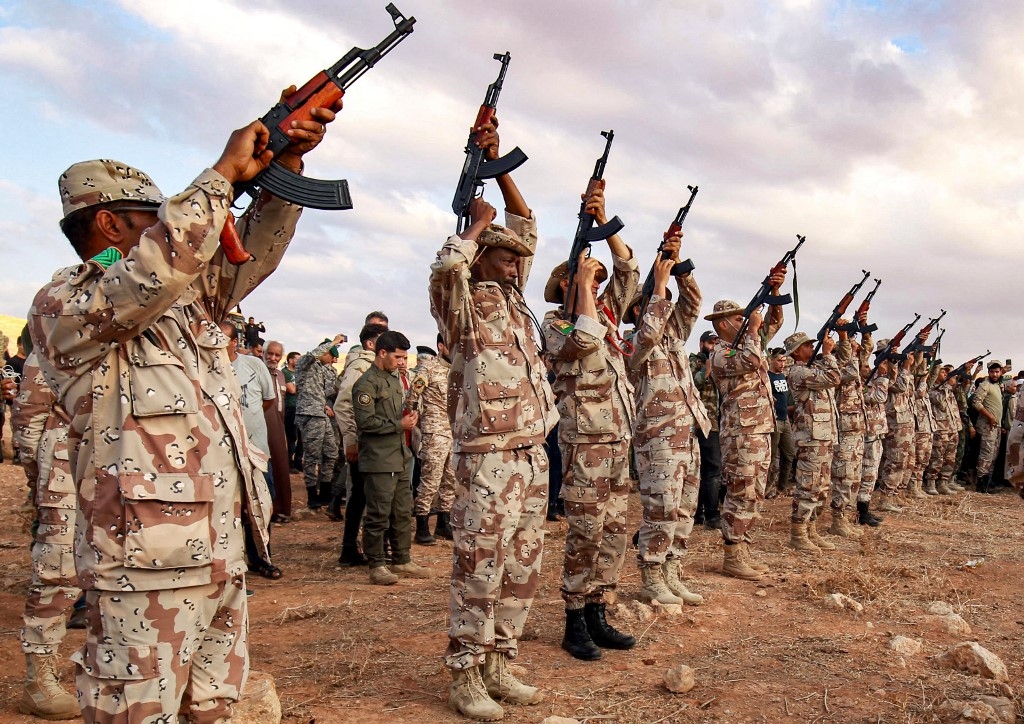
Warring parties in Libya, including Russian mercenaries, may have committed war crimes in the conflict, such as torture and murder, according to a United Nations report.
The UN report to the Human Rights Council was based on hundreds of documents, satellite imagery, interviews with more than 150 people, and investigations since 2016 in Libya, Tunisia and Italy.
Libya has endured years of chaos since a Nato-backed uprising toppled and killed longtime leader Muammar Gaddafi, who ruled the country for 42 years, in 2011.
Fighting between rival militias and competing administrations - including a failed offensive by eastern commander General Khalifa Haftar and his forces to capture the country's capital Tripoli - came to a halt last summer.
A formal ceasefire went into effect in October, followed by the establishment in March of a new unity government led by interim Prime Minister Abdul Hamid Dbeibah.
Haftar's eastern forces are supported by countries including Russia, Egypt and the United Arab Emirates. In contrast, the western forces of the Libyan Government of National Accord (GNA), which is recognised by the UN, is backed by Qatar and Turkey.
Russian mercenaries
In the report, published on Monday, Mohamed Auajjar, the head of the UN Independent Fact-Finding Mission on Libya, said: "Our investigations have established that all parties to the conflicts, including third States, foreign fighters and mercenaries, have violated international humanitarian law, in particular the principles of proportionality and distinction, and some have also committed war crimes."
The report accuses Wagner, a Russian security and mercenary firm, of shooting prisoners, according to Reuters.
It revealed that the fact-finding mission obtained a map showing locations of land mines planted near civilian buildings in areas abandoned by Haftar's eastern forces.
The majority of the mines were manufactured in Russia. Many killed and maimed civilians returning to their homes. The mine map was on a computer left behind by a Wagner personnel.
"There are thus reasonable grounds to believe that Wagner personnel may have committed the war crime of murder," the report said.
Wagner has not made a statement about the UN report.
'Torture on a daily basis'
"The violence has had a dramatic impact on Libyans’ economic, social and cultural rights, as evidenced by attacks on hospitals and schools," the report said.
It said that torture, which could be a crime against humanity, was perpetrated on a "daily basis" in Libyan prisons against detained migrants and asylum seekers aiming to cross Libya to the Mediterranean Sea and then to Europe.
“Civilians paid a heavy price during the 2019-20 hostilities in Tripoli, as well as during other armed confrontations in the country since 2016," Auajjar said.
"Air strikes have killed dozens of families. The destruction of health-related facilities has impacted access to health care and anti-personnel mines left by mercenaries in residential areas have killed and maimed civilians.”
The report added that the ongoing battles in Libya since 2011 led to the displacement of communities of Tawerghas, the Tebus and the Alahali.
The UN investigators named commander Mohammed al-Kani, who was killed in July by Haftar's self-proclaimed Libyan National Army, as a suspected perpetrator of killings carried out in the city of Tarhuna with victims buried in mass graves.
Last year, Middle East Eye reported from the rural town, which lies about 60km southeast of Tripoli, about the atrocities.
Authorities on Monday announced the discovery of 10 bodies in a new mass grave in Tarhuna, the latest morbid find after years of rule by the notorious Kaniyat militia.
"Two sites were discovered. Four unidentified bodies were extracted from the first and six from the second," the department charged with searching for remains said in a statement.
It also published pictures showing a number of holes in what it said was a local landfill site, adding that it expected to unearth more bodies.
'Not representing the Russian state'
Last year, when Russian President Vladimir Putin was asked about allegations of Wagner activities in Libya, Putin replied that "if there are Russians in Libya, they are not representing the Russian state, nor are they paid by the state," Reuters reported.
In 2020, battles in Libya between eastern and western forces threatened pushing the region of North Africa into a full-blown war. But the area stabilised after Haftar's forces retreated from the offensive on the Tripoli and both parties agreed on a ceasefire.
The country has a planned election in December following the establishment of the unity government in March.
"The chronic insecurity in Libya has led to the internal displacement of hundreds of thousands of people who have ended up in areas ill-equipped to accommodate large population movements," the report said.
A full version of the report will be presented to the UN Human Rights Council on Thursday 7 October.
Middle East Eye delivers independent and unrivalled coverage and analysis of the Middle East, North Africa and beyond. To learn more about republishing this content and the associated fees, please fill out this form. More about MEE can be found here.


